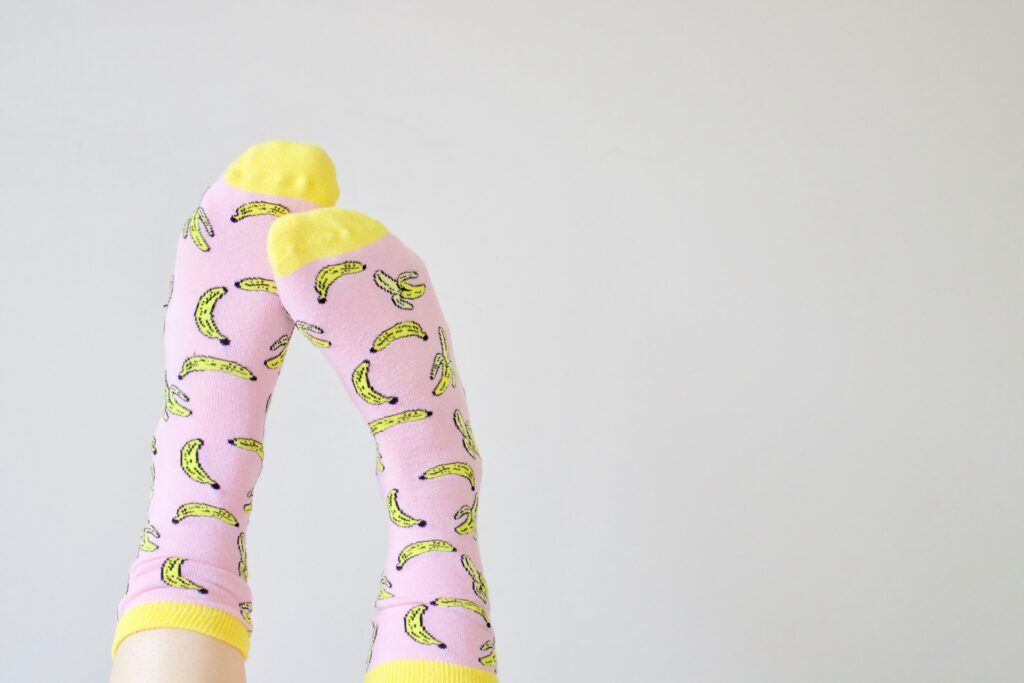


Do you struggle to fall asleep at night? Have you considered wearing socks to bed? Believe it or not, sleeping with socks on can actually improve your sleep quality and overall well-being.
In this article, we will explore the benefits of sleeping with socks on, including falling asleep faster, better sleep duration, and reduced insomnia symptoms.
Warming your feet with a pair of socks can improve your sleep quality. The benefits of sleeping with socks are numerous.
Wearing socks in bed can potentially provide numerous health benefits that contribute to a better night’s sleep. When you wear socks to bed, it helps to warm up your feet, which increases blood circulation. Improved circulation ensures good blood and oxygen flow, benefiting your heart, lungs, and muscles.
Wearing socks to bed can help you fall asleep faster by promoting distal vasodilation, which widens blood vessels and lowers your body temperature. Socks may also help reduce the frequency of hot flashes during menopause by stabilizing body temperature.
Additionally, socks can help moisturize your feet and prevent cracked heels. They may even reduce symptoms of Raynaud’s disease by keeping your feet warm.

When wearing socks in bed, you can experience additional advantages that go beyond improving your sleep quality.
Wearing socks to bed can help keep your feet warm, which is especially beneficial during colder months or for individuals who naturally have cold feet. By keeping your feet warm, you can improve blood circulation and ensure that your extremities receive adequate blood flow and oxygenation. This can have positive effects on your overall cardiovascular health and help prevent conditions like Raynaud’s Syndrome.
Additionally, wearing socks in bed can contribute to good sleep hygiene by promoting foot hygiene. By wearing clean socks, you can prevent odors and infections that may arise from poor foot hygiene.
If you have any circulatory issues, you shouldn’t sleep with socks on. Wearing socks to bed can potentially restrict blood flow, which can be harmful for individuals with swelling of the feet or those at risk of restricted blood flow.
It’s also important to consider specific medical conditions that may be exacerbated by wearing socks while sleeping. If you have a sleep disorder or any other medical concerns, it’s advisable to consult with a doctor for personalized advice.
When it comes to infants, there’s limited research on whether they should sleep with socks on. It’s best to consult with a pediatrician to ensure the safety and comfort of the child.
Children and infants should sleep with socks on, but it is important to consider their safety and comfort. Limited research exists on whether children or infants should sleep with socks on, making it difficult to make an evidence-based decision. There is a potential risk of circulation restriction, so it is recommended to consult with a pediatrician for guidance. Ensuring the safety and comfort of the child is crucial. To draw the audience in and keep them interested, here is a table highlighting the benefits of sleeping with socks on for children and infants:
| Benefits of Sleeping with Socks On for Children and Infants |
|---|
| Helps regulate body temperature |
| Provides warmth and comfort during sleep |
| Prevents the risk of cold feet and potential sleep disruption |
While it is generally safe for children and infants to sleep with socks on, it is important to monitor their comfort and ensure that the socks are not too tight to restrict circulation.
To ensure optimal comfort and benefit, select the most suitable socks for a restful night’s sleep.
When it comes to wearing socks in bed, it’s important to choose socks that will keep your feet warm and cozy throughout the night. The kind of socks you wear can make a difference in how well you sleep.
Look for socks made from natural materials such as cotton or wool, as they’re breathable and regulate body temperature. These socks can help keep your feet warm without causing them to overheat.
Additionally, it’s recommended to wear loose-fitting socks to promote proper blood circulation.

When deciding whether or not to sleep with socks on, it’s important to take certain factors into consideration. Wearing socks at night can help you sleep by helping you fall asleep faster and lowering your core body temperature. However, it may also affect your sleep if the socks are too tight or uncomfortable. To help you make an informed decision, here are some considerations when sleeping with socks on:
| Pros | Cons |
|---|---|
| Socks may help you fall asleep faster | Tight and constrictive socks may decrease blood flow |
| Lower your core body temperature | Poor hygiene if socks are not clean |
| Better sleep hygiene | Swelling or circulatory issues may require consulting a doctor |
| Wearing socks in bed may provide comfort | Compression socks should generally be avoided |
| Socks can help reduce symptoms of certain conditions | Consider the room temperature for babies wearing socks |
In conclusion, wearing socks to bed can offer numerous benefits for those struggling with falling asleep. It can help you fall asleep faster, improve sleep duration, and even reduce symptoms of insomnia.
Additionally, wearing socks to bed can prevent menopausal hot flashes, increase the likelihood of orgasm, and provide warmth during the winter. However, it’s important to consult with a doctor if you have circulatory issues or specific medical conditions.
Overall, sleeping with socks on can be a simple yet effective way to enhance your sleep quality and overall well-being.
Bach, V., Delanaud, S., Barcat, L., Bodin, E., Tourneux, P., & Libert, J. P. (2019). Distal skin vasodilation in sleep preparedness, and its impact on thermal status in preterm neonates. Sleep medicine, 60, 26–30. https://doi.org/10.1016/j.sleep.2018.12.026